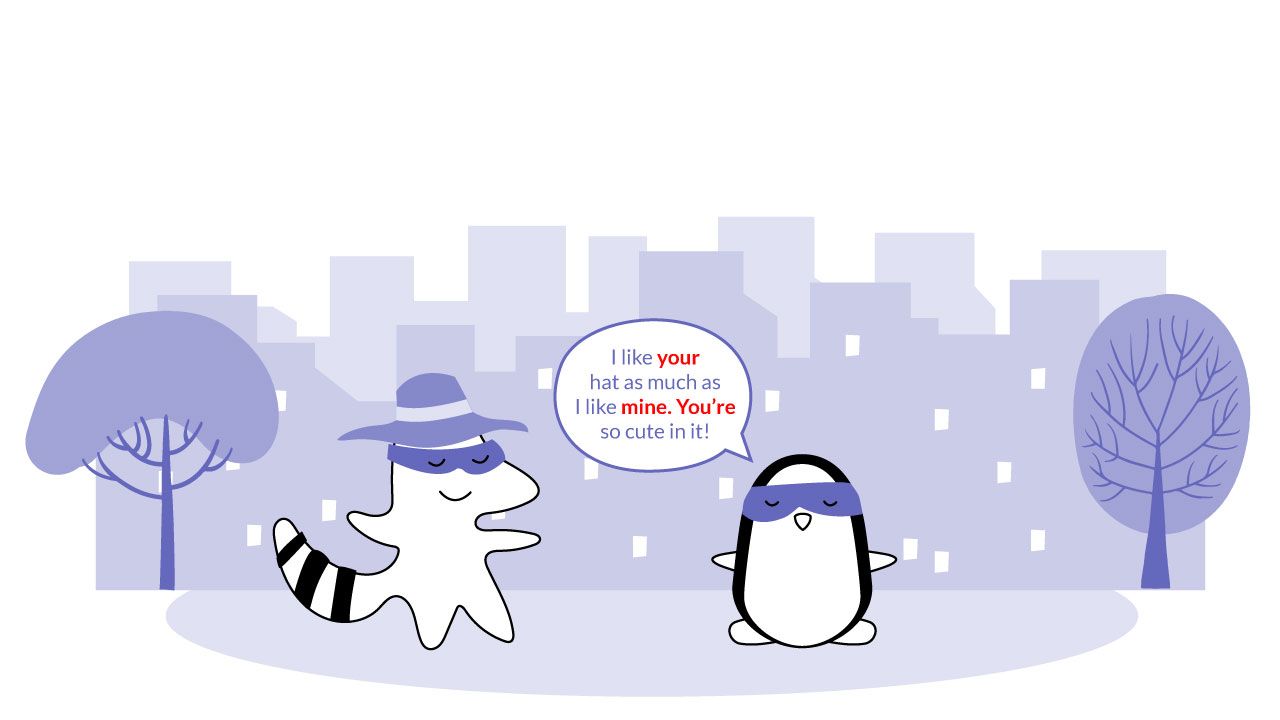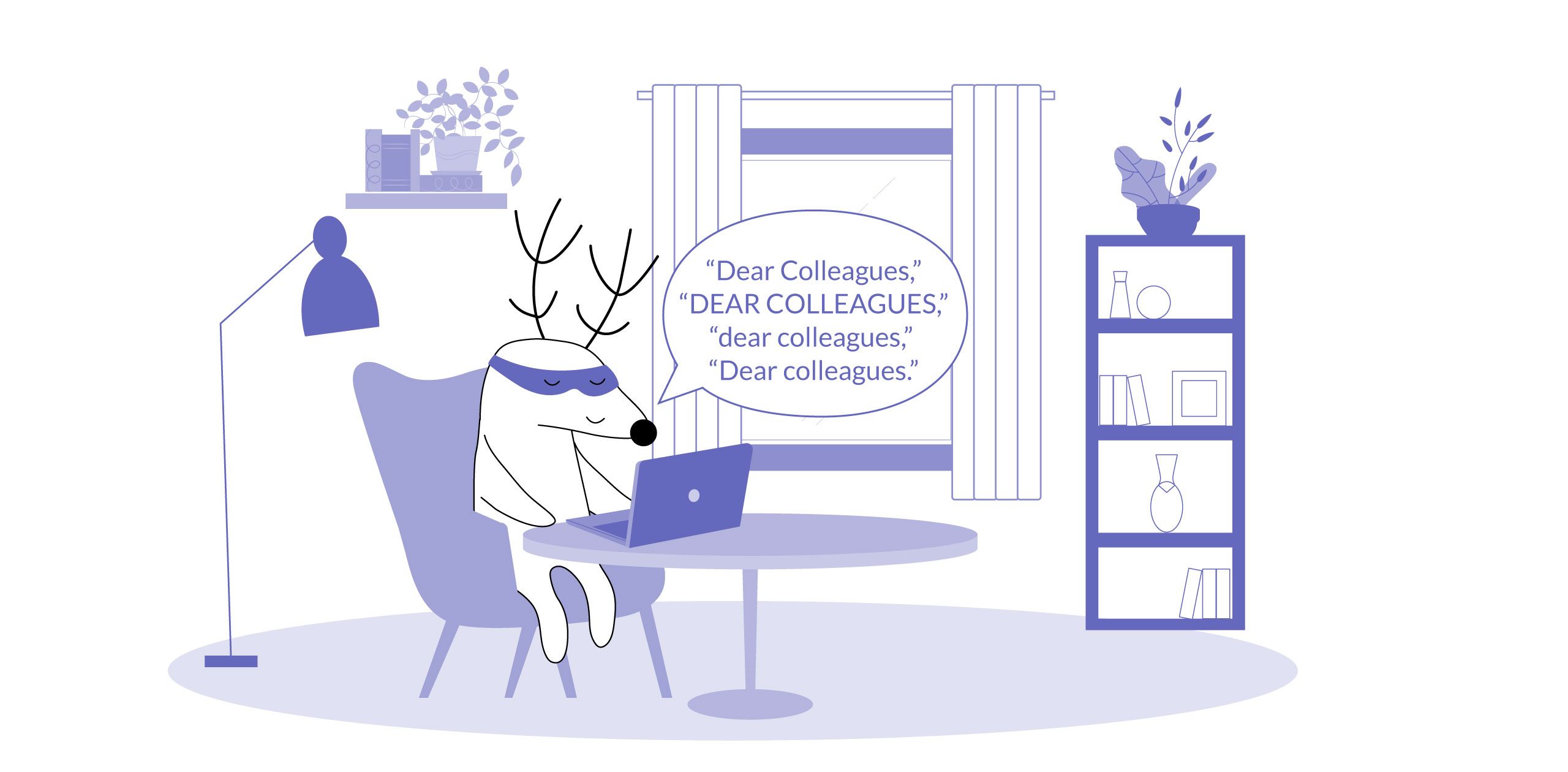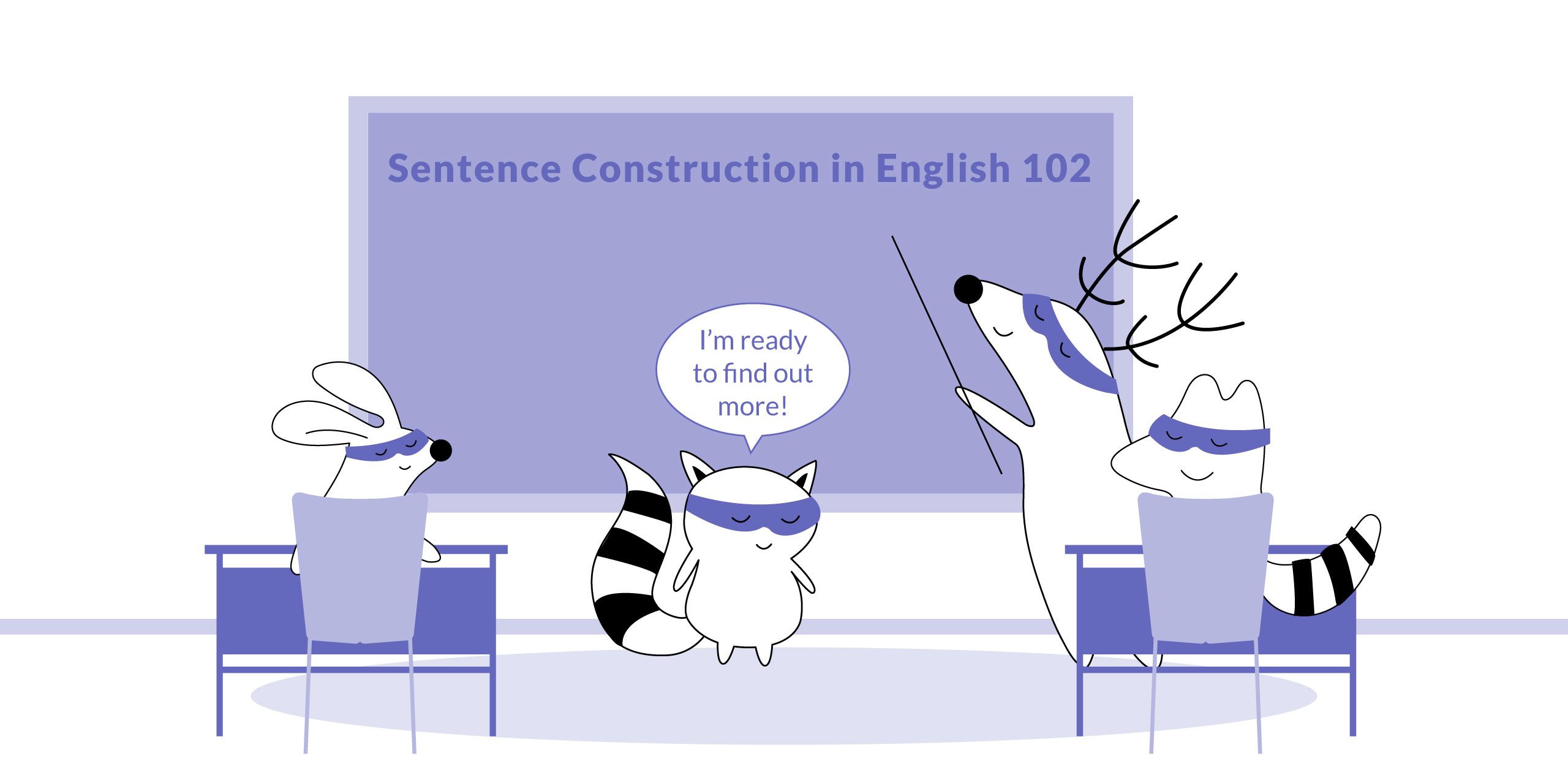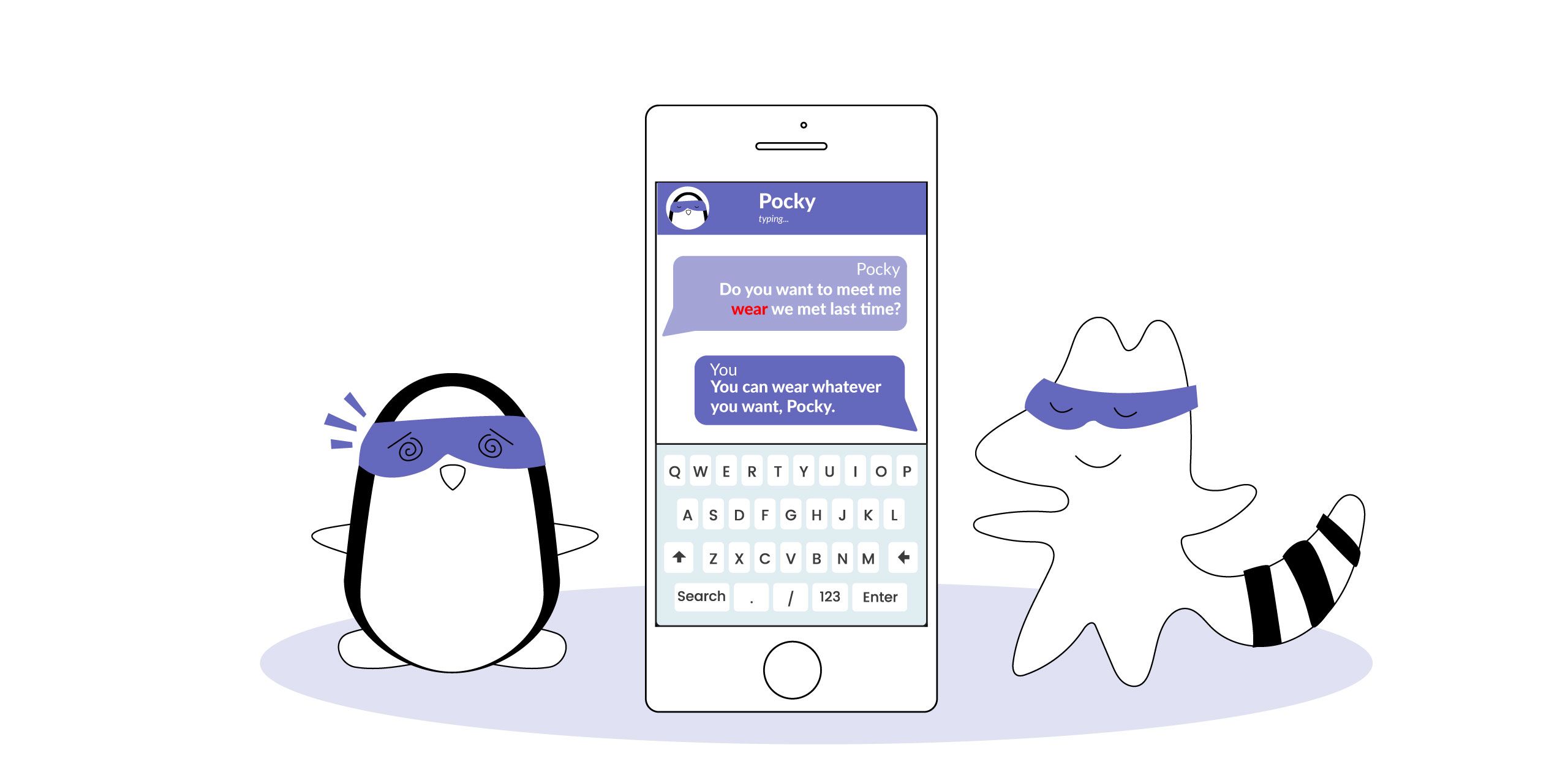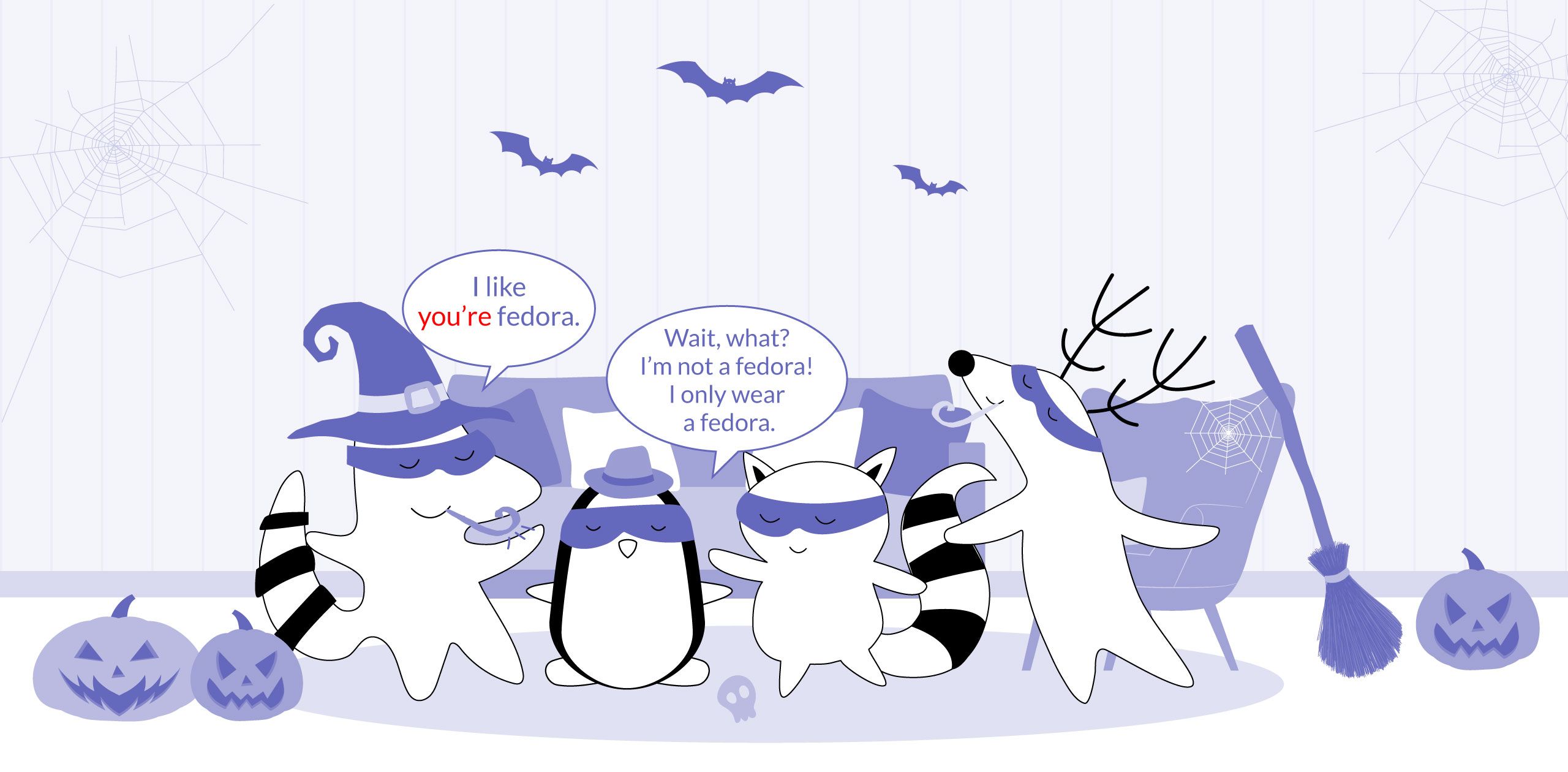
Learning English requires you to know and remember a lot of grammar rules. In addition, both spoken and written English have their own peculiarities and nuances.
Learn English with Langster
In this post, we want to help you understand the difference between "your" and "you're." These two words are homophones, which means that they sound the same but have different meanings and are spelled differently.
Many English learners and even native English speakers mistake these two words since both "your" and "you're" are used on a daily basis in the English language, and the difference between them seems insignificant. This is such a common mistake, it was even a joke in one of the Friends' most dramatic episodes!
And the fact that these words sound the same only complicates the situation, making it even easier to put the wrong word in a written sentence. However, once you've got the hang of it, the difference between these two words becomes clear, like formal and informal speech.
With no further ado, let's learn how to tell them apart and make sure you can choose the correct word whenever necessary.
Contraction of the Words
When you see "you're," you deal with a contraction. A contraction is a shortened form of a word or a group of words, where an apostrophe is used to replace the missing letters or sounds in writing or speech.
Usually, contractions are used to shorten verbs, auxiliary (helping) verbs, or modals attached to other words. Here are several examples of the most commonly used contractions in English vocabulary:
- 's = is/has
- 're = are/were
- I'm = I am
- 'd = had/would/should
- n't = not
- 'll = will
- 've = have
However, there are also contractions of verbal phrases that are created without apostrophes, such as "gonna" and "wanna," which mean "going to" and "want to," respectively.
Additionally, an apostrophe can replace a letter of a noun if you have the intention to represent a particular style of speech in writing. For example:
- somethin' = something
- y'all = you all/ all of you
- let's = let us
- the '90s = the 1990s
This way, "you're" is a short form of two words - "you are" and is most often used to describe the person you are talking to or their actions. It is also often followed by the present participle (the verb form with the ending "-ing"). For example:
- You're a great singer. = You are a great singer.
- You're singing* too loud. = You are singing too loud.*
As a result, one of the easiest ways to check whether you're using "you're" in a sentence correctly or not is to replace it with two full words - "you are." If the sentence still makes sense, then the use of “you’re” is correct in this case. For example:
- Incorrect: I like you're fedora! = I like you are fedora!
- Correct: You're a professional singer. = You are a professional singer.

Pronouns and Possessive Forms
When it comes to the word "your," you are dealing with a possessive adjective. However, as to not get you confused with grammar nuances, let's let's go further in our language learning journey and deal with English pronouns and their possessive forms from scratch.
In English grammar, there are seven basic personal pronouns that can replace a noun or a noun phrase to avoid repetitions in sentences. These include I, you, he, she, it, we, they.
In turn, possessive forms of pronouns show that something belongs to someone and show who owns or has something. They are never used with apostrophes, which makes it easier to tell the difference between contractions and possessive pronouns.
There are two ways to describe ownership in the English language - by using possessive adjectives or pronouns. Let's take a closer look at them:
Possessive Adjectives
Possessive adjectives, also known as a conjoint form of possessive pronouns, are used in front of a noun (a thing) in the sentence and don’t need an article. A possessive adjective also helps simplify sentences that show the possession of a noun.
The possessive adjectives in English are as follows:
- I - my
- you - your
- he - his
- she - her
- it - its
- we - our
- they - their
Here are several examples that use a possessive adjective in English sentences:
- It is my dog.
- They are your friends.
- We've read his most recent book.
- Sara invited me to her wedding.
- A dog lost its toy.
- I still haven't memorized our new address.
- We need to hear their opinion as well.

So, you should only use the word "your" when you want to mention in a sentence something that belongs to the person you're talking to. Here are more examples:
- Where is your phone?
- Did you finish your homework?
- Don't forget your keys.
- Who is your best friend?
Possessive Pronouns
Possessive pronouns are also called independent or absolute possessive pronouns. The main difference between them and possessive adjectives is that you must use possessive pronouns without a noun related to them.
This way, we only use possessive pronouns when we already know which object we are referring to - it allows us to avoid repetitions of defined objects in the text.
Here are all the possessive pronouns in the English language:
- I - mine
- you - yours
- he - his
- she - hers
- it - its
- we - ours
- they - theirs
In contrast to possessive adjectives, possessive pronouns are frequently located at the end of clauses or phrases in English sentences. Here are the examples:
- I haven't seen your phone, but mine is here.
- I like your computer chair. Mine is not as comfortable as yours.
- Her essay is already written, but he hasn't started his yet.
- He doesn't need help with his learning course, but she might need help with hers.
- We take supplements every morning. Remember to take yours before you leave for school.
- She moved to a new house, located closer to theirs now.
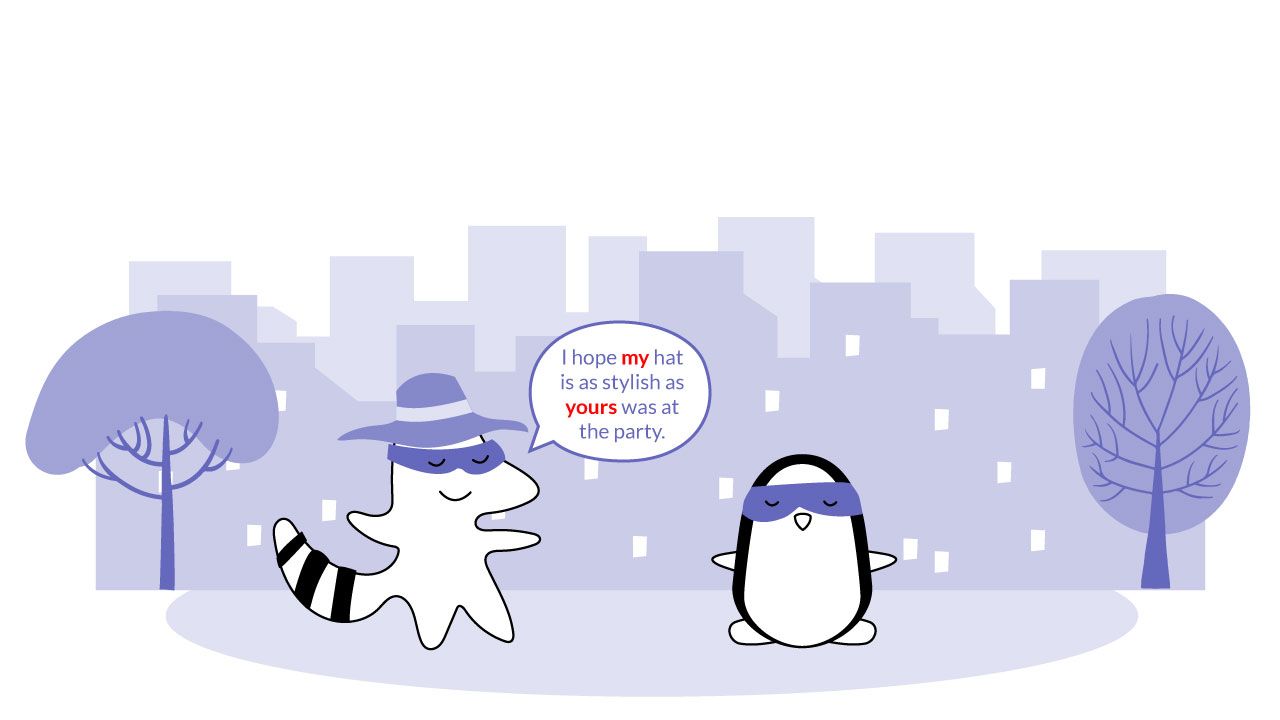
In addition, you should also use possessive pronouns after a noun with a preposition "of." For example:
- Do you remember Natalie? She is a friend of mine.
- I've read some articles of hers.
- It's Anthony. He's a colleague of ours.
Summary
As you can see, you don't have to remember all the grammar rules to determine whether you need to use "your" or "you're" in a sentence. The foolproof way to avoid getting confused is to remember that "you're" is the contraction of the words "you are," whereas "your" means belonging to a person.
This way, you can quickly check if you are using them correctly by replacing "you're" with its full form to test if the sentence still makes sense. Practice makes perfect, so don't hesitate to return to this post as many times as you may need.
Learning English is a lifelong process, so it's important to use various educational materials to keep your learning experience entertaining and effective. If you want to improve your English skills in general, consider downloading our Langster app - an alternative to language courses full of short stories with audio from native speakers and start learning English in an enjoyable way.
